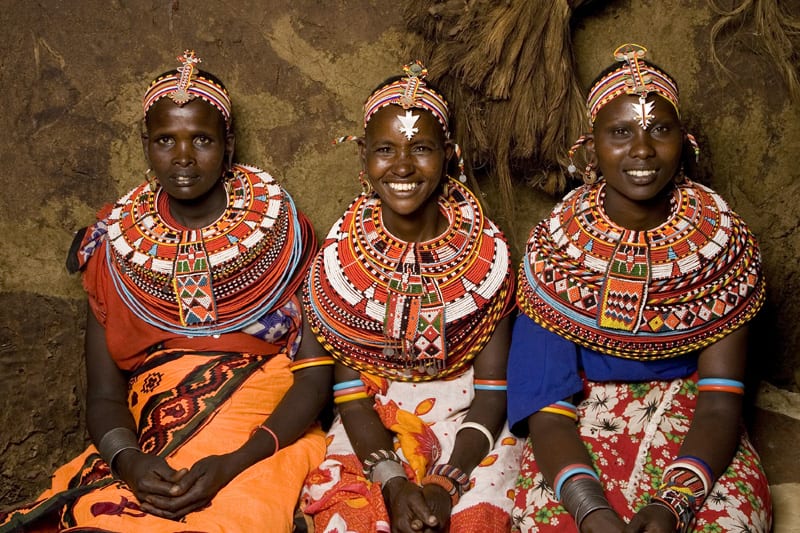
For years, Samburu women were nowhere among leaders and administrators due to the patriarchal underpinnings of their culture, where women were not even allowed to make decisions.
Barriers such as exploitation of girls and female genital mutilation (FGM) slowed their participation in labour, governance and education.
Things are, however, changing with the dispensation of the 2010 Constitution that paved way for women seats. Significant progress has been made since then with more women occupying positions in overall leadership and administration posts.
It is no longer a phenomenon to have a Samburu female administrator alongside her male counterparts.
Although more of them are yet to come out and vie for elective posts, deliberate efforts by government, civil society, political parties as well as development partners geared towards achieving equalitarian society, are slowly beginning to bear fruit.
Notably in the 2017 General Election, the Samburu elected the first-ever woman to the national assembly. The youthful former journalist Naisula Lesuuda, defied odds contested and won the Samburu West seat to become the first elected woman MP from the community.
Boosted the number
Ms Lesuuda of Kanu party trounced the former MP Jonathan Lati with 14,561 votes against his 13,971.
The 2010 Constitution, which created the post of the women representative also boosted the number of women who got elected.
Last month, during the infamous Kisima Declaration, to end FGM in Samburu County, President Uhuru Kenyatta said that girls, if given a platform, could make good leaders. He thus urged the community to end the harmful female cut, noting that the Kisima Declaration was vital to ending harmful practices like FGM and early marriages.
“Girls are marketable when they have gone to school. I tell you, elders, that you will receive double or even triple dowry when your girl child is educated. They can make very good leaders if given a good base and platform and Ms Lesuuda here is a testimony,” the President said on March 5, at the Kisima area in Samburu County.
He tasked the elders and other opinion-shapers to sensitise communities on the need to abandon circumcision for women and girls amid negative physical and psychological impacts.
“I want you (elders) to use your influence to enlighten the community on the hazards associated with FGM. We are not here to abolish our African traditions. I urge you to embrace alternative rites that does not harm girls and even boys,” the head of State said.
Kenya has enacted legislation that prohibits FGM in line with the global commitment to protect women and girls from all forms of abuse and discrimination.
Worth noting, more women from the perceived marginalised community impressively managed to win administration posts alongside their male counterparts.
A total of eight female administrators prevailed over some of their male counterparts, taking administration positions of chiefs and assistants in the bandit-prone region.
Currently, there are seven female assistant chiefs and one senior chief across the county. This is a true testament that time has come where women are strongly emerging in the political and administration domain, which has in the past, been a preserve for men.
Ms Lesuuda says it is not a walk in the park to stand before men and convince them to vote for their female counterparts.
“I remember when I made my entry into politics in 2017. I was told that I have gone against our traditions to stand before men, elders and warriors (Morans) asking to be voted. It was not easy competing with men, but I defied odds and I was elected,” the legislator says.
The MP was a first-time seeker of an elective post and won. She hopes to use the opportunity in parliament to influence policies that will be beneficial to her community.
“It shows you the milestones that we come from as a community where culture is greatly valued. I believe my historical win is a win for all women and girls who are aspiring to be leaders from the Samburu community. I am inspiring Samburu West,” she says.
Spirited sensitisation
Samburu County women representative Maison Leshoomo, a long-serving woman leader in the county, attributes the record number of women elective and administrative posts in Samburu County to the spirited sensitisation of the community.
“There is a behavioural change from grassroots. The electorates are eventually embracing and identifying themselves with female candidates,” she notes.
Ms Leshoomo is confident that more women will be inspired to take up roles amid a change of lifestyle and cultural prevalence.
The National Gender and Equality Commission says barriers such as exploitation of girls, forced marriages and FGM, have slowed the participation of women in labour, governance and education.
The commission chairperson Joyce Mutinda says women in top positions have offered great leadership despite the challenges brought about by the outbreak of Covid-19.
Data from the Kenya National Bureau of Statistics show women representation in politics was only three per cent in the 1990s. This number increased to 31.3 per cent in Senate and 21.8 per cent in the National Assembly in 2019. In the Judiciary, women magistrates constitute 53.3 per cent.

